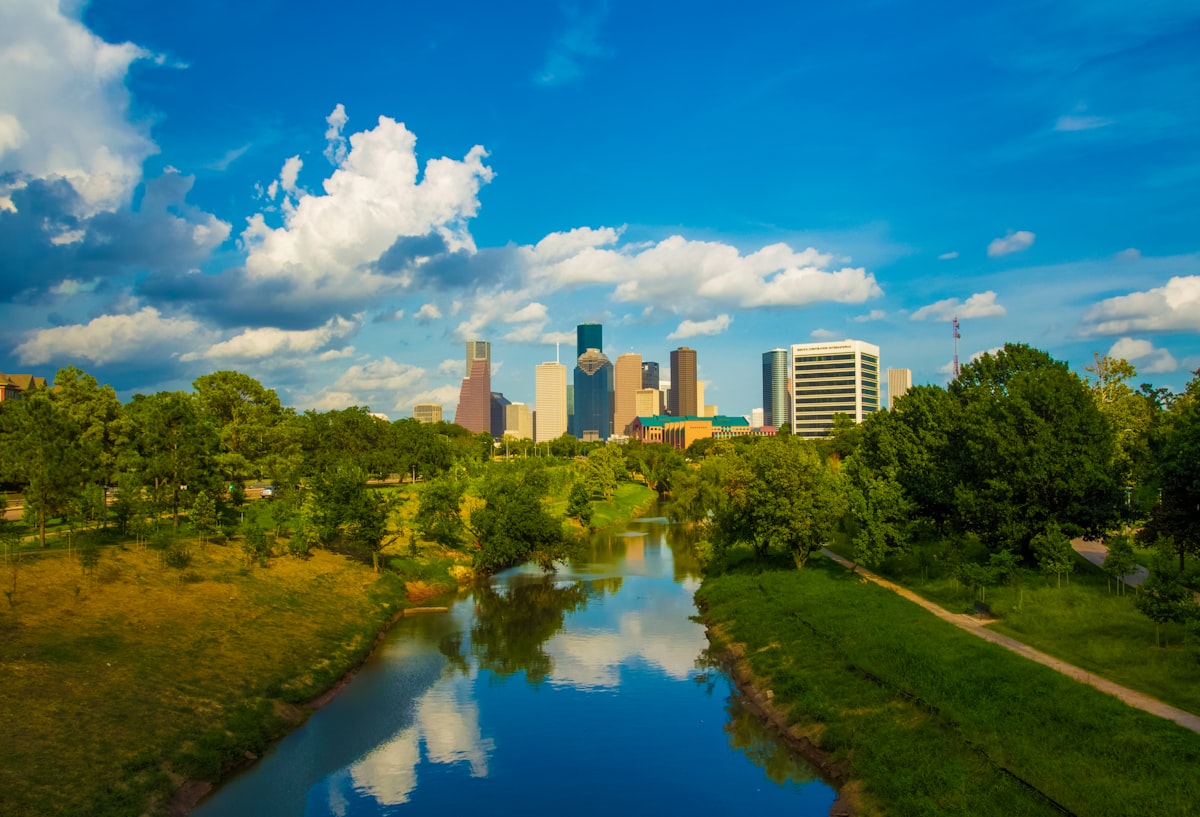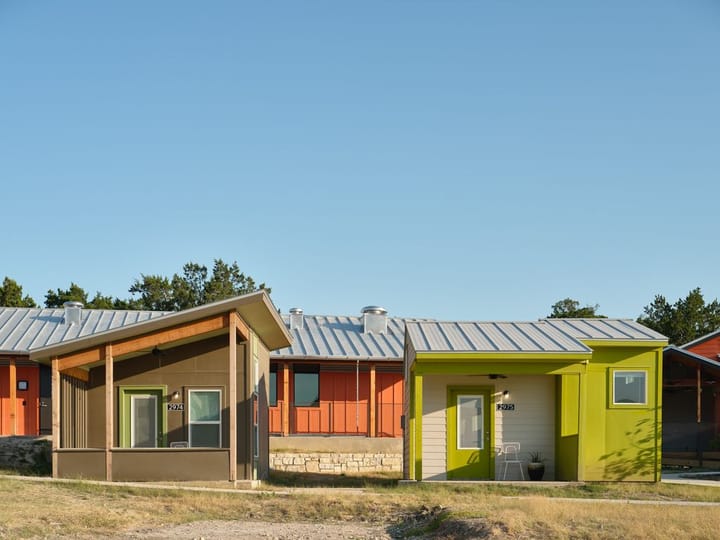Anna Meriano’s YA Series Centers An Untypical Texas

By Meredith Nudo
Anna Meriano can make pigs fly.
OK, so maybe not literally. But miniature marranitos do factor into Leonora “Leo” Logroño’s first explorations into her family’s brujaría heritage in Meriano’s Love Sugar Magic series of middle grade fantasy novels, flitting and floating about with careless whimsy.
The novels—A Dash of Trouble, A Sprinkle of Spirits, and A Mixture of Mischief—center on the Logroño’s multigenerational bakery, Love and Sugar. One of the centerpieces of life in the fictional-but-not-really (more on that later) town of Rose Hill, Texas, the shop’s legendary pan dulce comes with a secret ingredient: a little touch of witchcraft to bring every visitor a bit of luck and peace and warmth during their harried day. No matter what challenges they face, Leo and her family reflect a wholesome joy that dismantle stereotypes about small-town Texas life and brujaría alike.
While developing the setting, Meriano asked herself, “What if Houston was small?” She worked alongside Dhonielle Clayton and Sona Charaipotra, her publishers at the appropriately-named Cake Creative, to make sure everything she loves about her home city (and current place of residence) shine through.
“Dhonielle, Sona, and I set out from the beginning to write a book that was going to be very celebratory… We want[ed] a magic, fun, ‘I have powers! And I'm going to use them and I'm going to get into trouble! And then I'm going to fix the trouble!’ story that you usually only see [written] for British children,” Meriano says. “We didn't want the town to be really racist, or [have] a deep, dark underbelly, because it was just not the type of book we were trying to write.”
That’s not to say that Meriano takes an unrealistically Pollyanna-ish view of Texas’ flaws. She knows the state doesn’t exist in a constant flow of sunshine and rainbow ponies. Love Sugar Magic isn’t about stuffing one’s head in the sand and neglecting reality. Rather, it revels in one of the possible realities that so often go neglected when other Americans think of Texas: a Texas of hospitality, of community and kindness. A Texas of cultural and ethnic diversity, where differences are strengths, not flimsy excuses for oppression.
“It's just not realistic to my experience of Texas… I didn't think I was necessarily doing something like creating a really unusual Texan town. I was mostly writing what I grew up with and my experiences,” Meriano says. “And then as soon as people started reading it, they started coming to me with, ‘Whoa, you made Texas not racist…’ It really surprised me that that was always the reaction.”
What Meriano didn’t realize is that Rose Hill actually exists, five miles out from Tomball in an unincorporated section of Harris County. She originally envisioned it as nearer to Victoria, and had to work around this unexpected snarl by including an offhand reference to “the other Rose Hill.” Texas, after all, does already have both Woodlands and The Woodlands. It’s not outside the realm of possibility.
And even though shrinking classmates and skybound pastries are on the outskirts of possibility, Meriano’s depiction of brujaría hit home for many of her readers, who get excited to see a magic system based on Latin American culture. Along with Zoraida Córdova’s Brooklyn Brujas series and Angelina M. Lopez’s Full Moon Over Freedom, Love Sugar Magic grants visibility to colonized magical practices that often continue to go stigmatized even as more Eurocentric witchcraft practices grow in popularity.
Brujaría that encompasses elements of Santería and the diasporic offshoots of Vodun, such as Haitian Voudou and Louisiana Voodoo, are especially prone to being negatively stereotyped as evil, demonic, and dangerous. Alternately, they’re fetishized and reduced to an erotic exoticism, dehumanizing practitioners as curiosities rather than complex individuals with complex belief systems. Rarely does one get to engage with thoughtful, nuanced, informed stories from the actual cultural milieus wherein brujaría is embraced.
Meriano herself is not a practitioner of brujaría, and states that she put fiction and fantasy ahead of genuine craft when designing her series. Likely for the best, as brujaría involves closed practices meant to be shared within Latin American families looking to connect with the historically suppressed indigenous aspects of their cultural heritage. Yet despite the author’s liberties, Love Sugar Magic resonates with young readers who recognize elements of brujaría in their own lives.
“It is really cool if I go into school and someone says, ‘My grandma does this!’” Meriano says. “And I can be like, ‘That's amazing! That's something really special and powerful, and you're gonna be the person who can pass that along. That's really cool!’”
The brujaría practiced by the Logroño family involves special powers based on birth order, only to be used for kind, helpful ends that bring succor to an exhausted world. Any mischief perpetuated by Leo comes from a place of childhood curiosity and good intentions gone awry as opposed to malice. Only one true villain ever shows up in Love Sugar Magic; his evil comes from misusing magic and abusing supernatural creatures, not the presence and practice of magic itself.
In this, Leo and her family embody Meriano’s spirited look at a Texas that is, and a Texas that can be. Stripped of stereotypes, the Logroños’ brujaría enriches their small town through the Love and Sugar in their bakery’s name. And in kind, the small town enriches the Logroños by providing them with a welcoming, supportive community in which they can thrive.
“Texas is great. But there's a lot of not-great stuff about it… A lot of Texans are fighting to make everything better. I think there's also a lot of Texans who are quietly making it better in small communities,” Meriano says. “They're just like, ‘I'm going to make my community stronger. I'm going to take care of the people that I can take care of in my sphere.’”



Comments ()